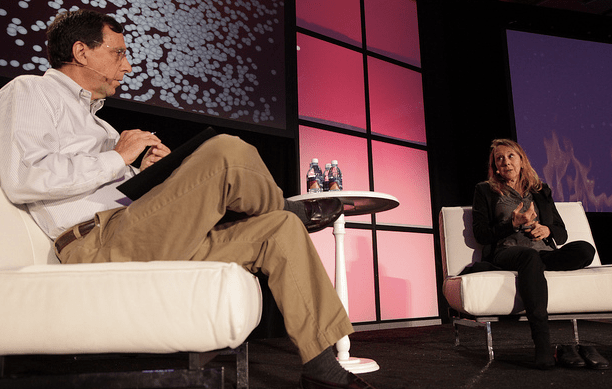As the amount of digitally collectable data grows, we’ve entered a period of homebrew health, investor Esther Dyson holds. In an interview with the New York Times’ John Markoff at Stanford School of Medicine’s emerging tech conference Medicine X last week, she elaborated, “People are buying FitBits but writing their own software, and as we can make much better predictions, there’s a sea change” in consumer and employer involvement in wellness.
The founder of EDventure Holdings said her interest in “the most interesting unsolved problems in healthcare and human behavior” came in part from attending a conference for physicians and their families years ago. Tired of hearing their complaining about the brokenness of medical systems, she noticed how different the conversation would have been with entrepreneurs, technologists, and investors present. “In my business — startups — you would have had people excited about doing something instead of just being depressed.”
So how does one go about improving healthcare and wellbeing with technology? “My first reaction was to blow the thing up” and start over, she said, noting that industries that have tried to fix themselves from within — think telephone service — often fail to do so. “Ideas need to come from the outside, the way mobile phones were introduced and changed everything.”
Dyson said she’s excited to now see a market for good health that didn’t previously exist without ways to monetize positive behaviors. “People are used to paying for computers, not for their own healthcare,” she said. “People now pay online for music, so things may start to change,” especially with the availability of sensors and social networks.
Dyson said she has made 25 health-tech angel investments, from prediabetes tracking startup and RockHealth alumni Omada to Genomera, GreenGoose, Habit Labs, HealthTap, and Keas. “In theory, I invest in things that help people live better. In practice, I’m kind of susceptible to anything,” she said. Space travel investments are very much of interest, and she — only partially — joked that she wants one of her health startups to do well enough to send her to space. (She had trained as a cosmonaut in Russia.)
Dyson talked about her early years as a fact checker and journalist, the need for healthier school lunches, and the decision to publish her public health data online. Genomics and information science especially excite the Quantified Self buff in Dyson, who was the third subject in the Personal Genome Project. “With medicine I realize that interacting with things are much more complicated than the things alone, and we need to pay attention to the social cues and interactions around people that generate their behavior.”
Photo by Theo Rigby.
